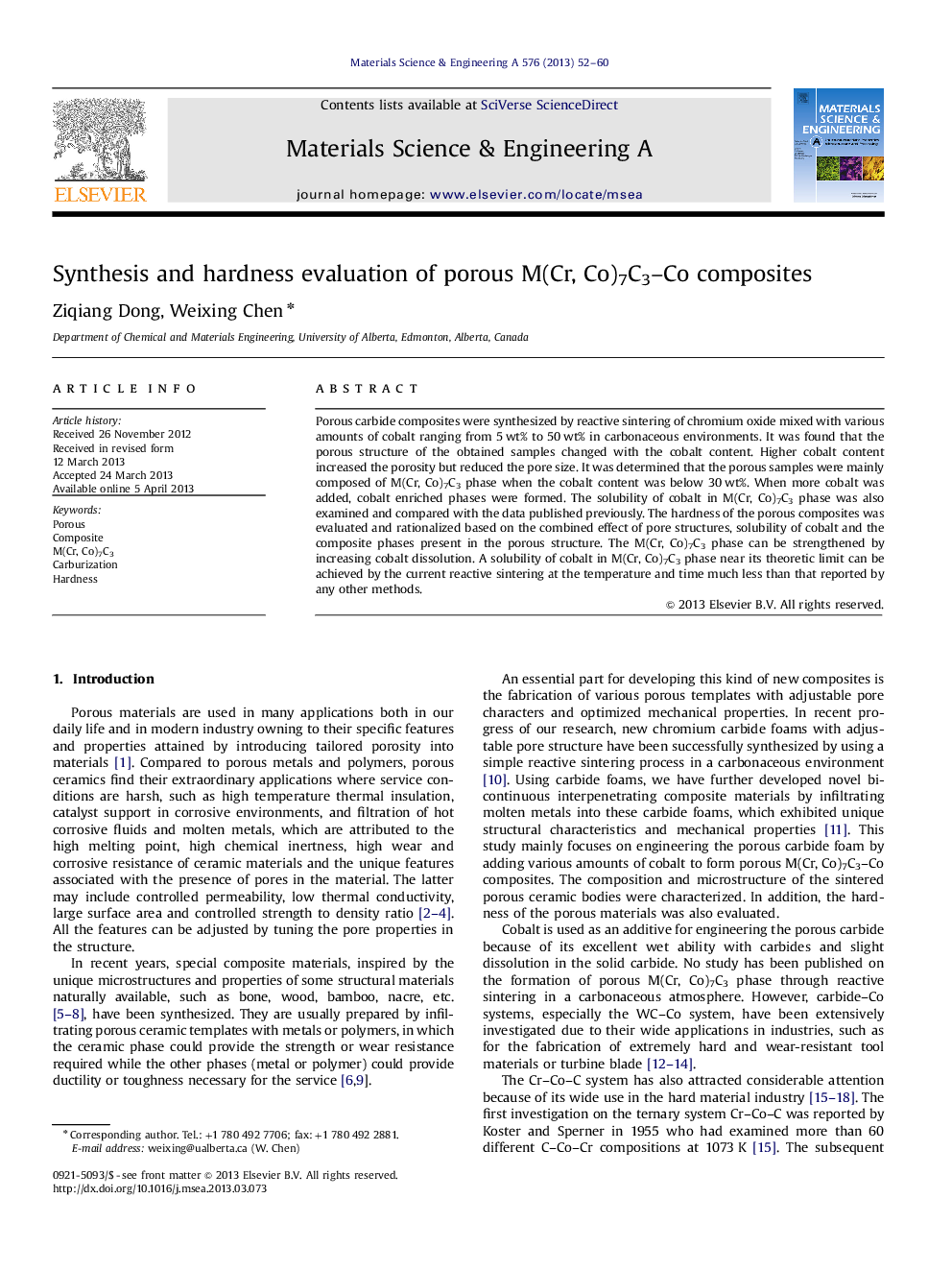| Article ID | Journal | Published Year | Pages | File Type |
|---|---|---|---|---|
| 7983045 | Materials Science and Engineering: A | 2013 | 9 Pages |
Abstract
Porous carbide composites were synthesized by reactive sintering of chromium oxide mixed with various amounts of cobalt ranging from 5Â wt% to 50Â wt% in carbonaceous environments. It was found that the porous structure of the obtained samples changed with the cobalt content. Higher cobalt content increased the porosity but reduced the pore size. It was determined that the porous samples were mainly composed of M(Cr, Co)7C3 phase when the cobalt content was below 30Â wt%. When more cobalt was added, cobalt enriched phases were formed. The solubility of cobalt in M(Cr, Co)7C3 phase was also examined and compared with the data published previously. The hardness of the porous composites was evaluated and rationalized based on the combined effect of pore structures, solubility of cobalt and the composite phases present in the porous structure. The M(Cr, Co)7C3 phase can be strengthened by increasing cobalt dissolution. A solubility of cobalt in M(Cr, Co)7C3 phase near its theoretic limit can be achieved by the current reactive sintering at the temperature and time much less than that reported by any other methods.
Keywords
Related Topics
Physical Sciences and Engineering
Materials Science
Materials Science (General)
Authors
Ziqiang Dong, Weixing Chen,
